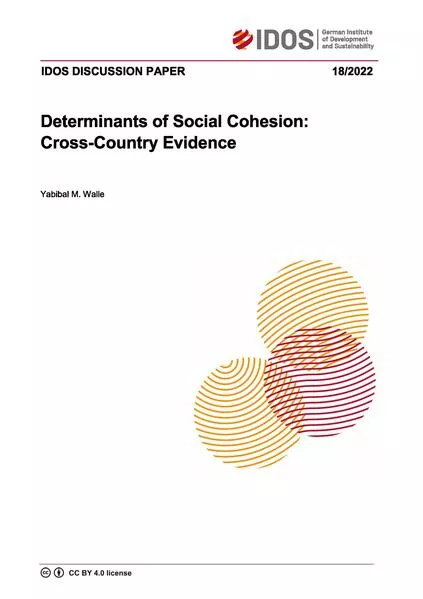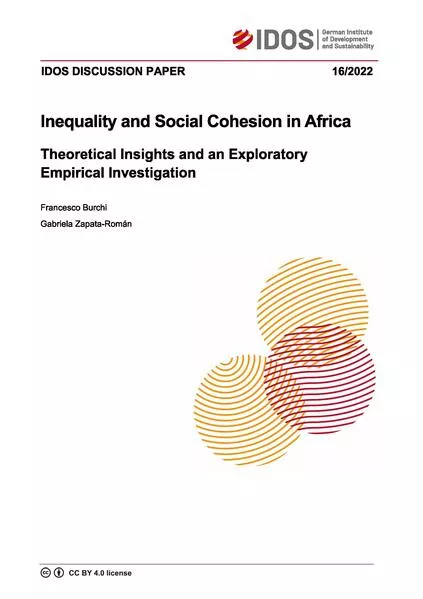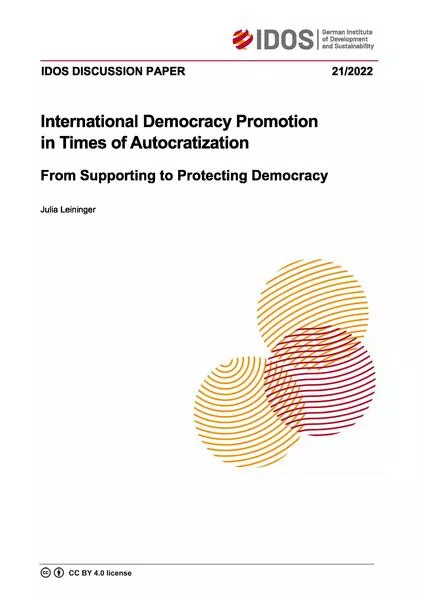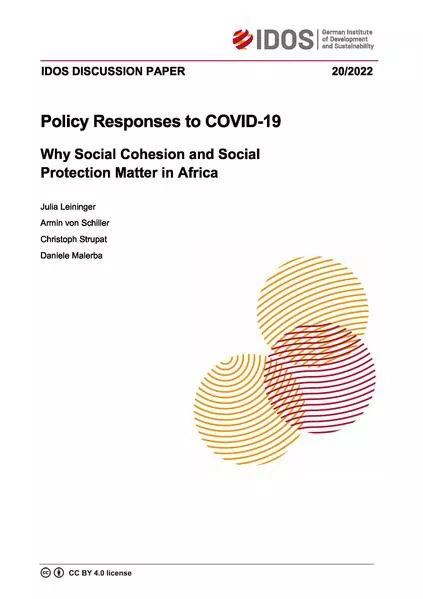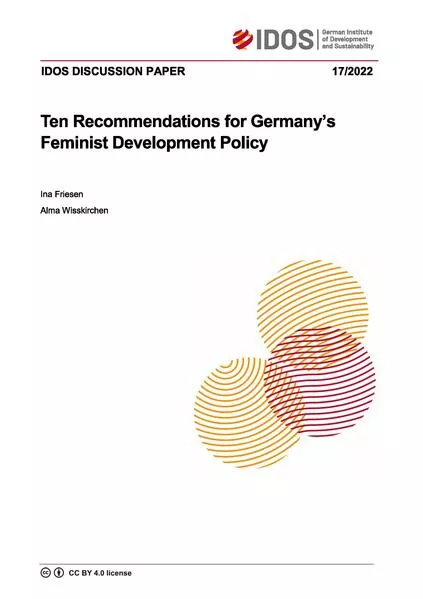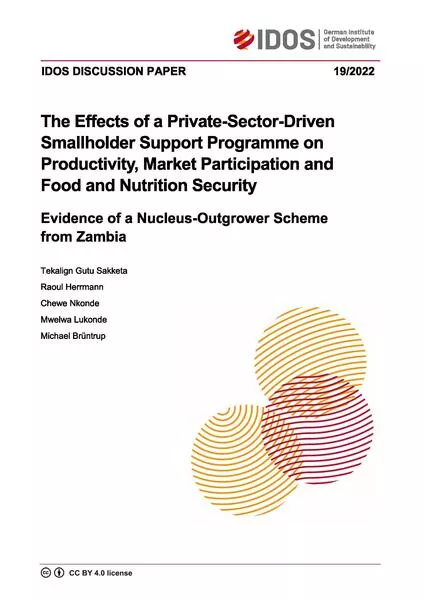
Tekalign Gutu Sakketa
The effects of a private-sector driven smallholder support programme on productivity, market participation and food and nutrition security
- evidence of a Nucleus-Outgrower Scheme from Zambia
ISBN: 978-3-960-21198-3
79 Seiten | € 6.00
Buch [BA]
Dieses Buch gehört zur Reihe IDOS discussion paper und enthält ca. 5 Folgen.
Erscheinungsdatum:
01.12.2022
Politik
Tekalign Gutu Sakketa
The effects of a private-sector driven smallholder support programme on productivity, market participation and food and nutrition security
evidence of a Nucleus-Outgrower Scheme from Zambia
Nucleus-outgrower schemes (NOSs) are supposed to be a particularly effective private-sector mechanism to support smallholder farmers and contribute towards mitigating the problematic aspects of pure large-scale agricultural investments. This discussion paper uses panel household survey data collected in two rounds in Zambia to analyse some agro-ecological and socio-economic impacts of the outgrower programme of one of the largest agricultural investments in Zambia: Amatheon Agri Zambia (AAZ) Limited. The descriptive results show that the type of participation in the programme varies across participants and components, with most participating in trainings. Econometric results suggest the following key findings. First, although the overall impact of the AAZ outgrower programme on the uptake of conservation agriculture practices is robust and promising, impacts on the adoption of other agricultural technologies is less obvious and the effect depends on the type of support provided. Second, the programme has had a significant impact on maize productivity promoted in the initial phase but not on the other crops – mainly oilseeds – promoted later. Third, the initially less productive farmers seem to benefit slightly more than already better performing ones. Fourth, although the impact on overall household security was insignificant, there is some suggestive evidence (although the effect is weak) that the programme has a positive effect on improving women’s uptake of micronutrients. Finally, our findings show that the three components of the programme (trainings, seed loans and output purchases) have different effects on the adoption of sustainable agricultural practices and productivity, and to some extent on food security. Overall, the results suggest that NOSs, with all their risks, can play a role in the adoption of sustainable agricultural practices, improving farm-level agricultural technologies, providing input credit, and thereby improving productivity and smallholder livelihoods. However, this is not automatically the case, as it crucially depends on the design and management of the project; the availability of good policies and institutions governing the rules of operation; the types of crops promoted; the duration of the project; and the political commitment of host countries, among others.
Unterstütze den lokalen Buchhandel
Nutze die PLZ-Suche um einen Buchhändler in Deiner Nähe zu finden.
Bestelle dieses Buch im Internet
| Veröffentlichung: | 01.12.2022 |
| Seiten | 79 |
| Art des Mediums | Buch [BA] |
| Preis DE | EUR 6.00 |
| Preis AT | EUR 6.20 |
| Reihe | IDOS discussion paper 19 |
| ISBN-13 | 978-3-960-21198-3 |
| ISBN-10 | 3960211988 |
Diesen Artikel teilen
0 Kommentar zu diesem Buch
.... weitere Publikationen von German Institute of Development and Sustainability (IDOS) gGmbH
Leserunde
Kinderbuch »Lasse und Juna - Total versteinert!« – Wikingerabenteuer mit Mut, Freundschaft und Entdeckergeist
Bewerbungsfrist bis zum: 05.03.2026



